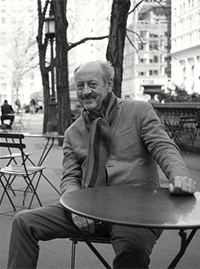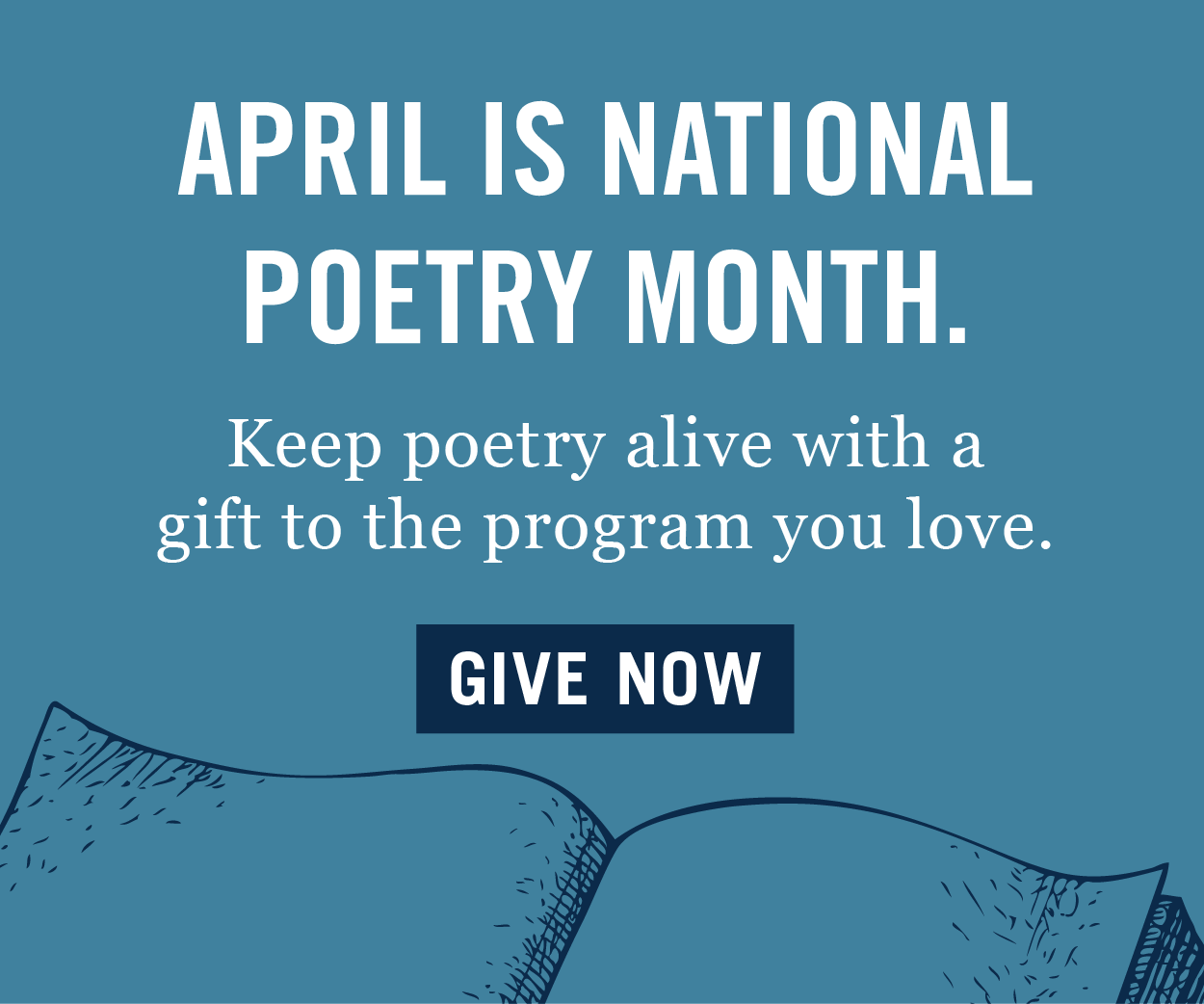
Billy Collins – photo by Bill Hayes
Billy Collins is the author of twelve collections of poetry, including his most recent Aimless Love (2013) and The Rain in Portugal (2016). He is also the editor of Poetry 180: A Turning Back to Poetry, 180 More: Extraordinary Poems for Every Day, and Bright Wings: An Illustrated Anthology of Poems About Birds. A Distinguished Professor of English at Lehman College of the City University of New York, and Senior Distinguished Fellow at the Winter Park Institute of Rollins College, he was Poet Laureate of the United States from 2001 to 2003 and New York State Poet from 2004 to 2006. In 2016 he was inducted into the American Academy of Arts and Letters.
Browse poems by Billy Collins in The Writer’s Almanac’s pre-2014 archive
Browse poems by Billy Collins in The Writer’s Almanac’s recent archive
You grew up in Queens and, an only child, have said that your mother read to you often. You said: “I have a secret theory that people who are addicted to reading are almost trying to re-create the joy, the comfortable joy of being read to as a child by a parent or a friendly uncle or an older sibling. Being read to as a child is one of the great experiences in life.”
Can you tell us about growing up in New York, the books you loved, the sights and tactile memories that remain vibrant in your memory?
I was born in the French Hospital, which was on West 30th Street, so I can proudly say I was born in Manhattan, but we lived in Jackson Heights, Queens. Now that Brooklyn is saturated, Queens has become the new hip destination. A little late for me. They say people who claim to have happy childhoods are just good at repression, but I had a family as sturdy as a milking stool, the three legs being my mother, father and me. My mother did read to me just about every night at bedtime. If I had a babysitter, she would be handed a book and told to read to me. Most of them read a couple of sentences and said, “OK, I read to you, now go to sleep.” Once I outgrew Mother Goose, my mother read the classics of the day: memorably, Black Beauty and The Yearling. Later I was on to the Hardy Boys and the collie novels of Albert Payson Terhune. More animals than human characters. So reading and the saying of poetry were common activities in my childhood. I think a point occurs in the reading development of some young people where they change from identifying with the characters to identifying with the writer, that mysterious, creative presence behind and in the words. The more noticeable that shift, the more likely it is that the reader will become a writer, or at least fantasize about being one.
You published your first poems in the back of Rolling Stone magazine. They paid $35.00 a poem. Did you get letters from the large readership for any of these poems? I think it’d be terrific if traditionally nonliterary print magazines published poetry nowadays, and music fans seem like a rightful and appreciative audience for emerging poets.
Thirty-five dollars might not seem like a lot of money for a poem, even a short one, but at the time a pack of cigarettes cost 32 cents. We’re talking cartons! Rolling Stone is not a literary magazine, but the little poems (mostly involving states of mind while staring at something) were read by lots of people. What it lacked in highbrow cachet, it made up for in subscribers.
Although you never attended a writing program or took writing workshops, you did meet poet Robert Frost when he visited your class at Holy Cross College. What was this experience like?
Frost paid a visit to my college in 1962 to give a reading, not surprisingly because Frost popularized the now-ubiquitous practice of inviting poets and prose writers to university campuses. About six or seven students who made up the staff of the student literary magazine were invited to join the poet and a few teachers (mostly Jesuits) for dinner in a private room on campus. So technically, I did have a meal with Robert Frost, but none of us dared to ask him a question or even say a word. Frost was elderly, his face deeply furrowed under that blinding white hair, and we were intimidated. Plus, the priests kept shooting us looks of discouragement just in case we opened our mouths and made fools of ourselves. At least that is the way I interpreted those glances.
Do you think writing workshops are helpful, now that you’ve gone on to teach many?
There is no guarantee that you will leave a workshop as a better writer, but you will be a better reader. No harm in that. One of the workshop’s drawbacks, as someone pointed out, is that some teachers want their students to write poems just like theirs, only not quite as good. I tell my students that I don’t know how to write their poems. And even if I did, I wouldn’t let that take time away from trying to figure out how to write my poems. I never took a workshop, mostly because such things simply weren’t around much when I was young. Plus, I was attracted to writing poetry because you did it alone. In fact, the main subject of my early poems was being alone. I laughed in agreement when Kay Ryan told me that she would consider taking a workshop “an invasion of privacy.”
So many bios about you mention that you didn’t publish your first book until you were 40 years old. As if that’s ancient! It’s not as if writing is playing tennis and you’re past your prime. Why do you think there is such focus on the age a writer publishes his or her first book? It’s as though you may as well not even try if you haven’t published prodigiously by age 23.
The pressure to publish early, often prematurely and at your own peril, arises from a single source: the MFA craze. Once a pleasurable activity becomes part of academic curricula, something inside it dies.
You said something once, and it always stuck with me. You may or may not recall. Actually two things. One: Always put your best poems first in a book. And two: Avoid a poem with cicadas. I’m paraphrasing. But ever since I heard you say this, I notice poems with cicadas everywhere — every fourth or fifth chapbook has a poem mentioning them. They were not there before you pointed it out; I’m sure of it. It’s a curse on the poetry world that once seen cannot be unseen.
More importantly, I now always read the first five pages of any poetry collection, even if I end up skipping to other pages from there. Why put the best poems first? I think one might want to spread them around. How do you determine what is the “best” poem — or the ones to put first? Do you want readers to approach your collections sequentially?
Here are the two ways to arrange the poems in a manuscript: a) when you submit a ms, front-load it. Put all your best poems right up front. (If you can’t tell which ones are your best, it’s too early for you to be thinking about publication.) Editors are among the few people who read mss from front to back; if you catch their interest early, they might just keep reading. b) after your ms has been accepted, tell the editor you’d like to change the order of the poems. An editor doesn’t want to get in the way of that, leaving you free to fiddle the poems into some kind of “creative” order. Remember that what editors are looking for above all else in a manuscript is a reason to stop reading it.
Don’t get me started on cicadas. When I see one, I stop reading the poem. Next!
In 2001, you launched a project called Poetry 180, encouraging high schools to read one poem over the intercom every day, with no analysis or discussion allowed. You said, “[My hope is that it will] take poetry out of the coffin of an anthology … [that] it floats out to the student in an unexpected way.” Can you tell us more about Poetry 180?
The best thing I can say about Poetry 180 is that it works. Based on many hundreds of anecdotal reports from high school teachers, their students love hearing a poem a day and even clamor for it. It’s not “school” poetry, and students are not asked to interpret it.
Do you have a certain place you write, a favorite desk? Does it face a window or wall? What time of day do you like to write? Do you prefer silence or some sort of ambient noise as you concentrate?
I write anywhere. I don’t require a scented candle or a favorite cardigan. I can write on a train or in Yankee stadium. When it comes, it comes. Of course, I can enjoy a long train ride and extra innings in the Bronx without writing a thing.
What’s the deal with mice, Mr. Collins? They enjoy coming around your poems.
Too much attachment to cartoons plus living in a porous 1860s farmhouse for many years.
Please tell us about your latest collection, The Rain in Portugal (2016). The first poem in the book is called “1960” and was recently featured on Almanac.
I can’t say much about the contents, but the book’s title is an admission that I’m not much good at rhyming. One of the themes of my poetry is absence, in this case, the absence of Spain.
Advice for aspiring writers? Poets in particular.
Read, read, read. Aim for 10,000 hours of reading. Start with Wordsworth’s The Prelude.
Interview by Joy Biles
